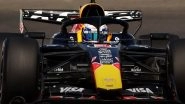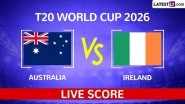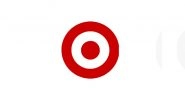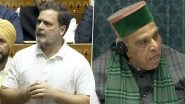Berlin, Jun 30 (AP) Germany, the European Union's biggest economic power, is taking over the rotating presidency of the 27-nation bloc amid massive challenges and huge expectations as the continent grapples with the fallout from the coronavirus pandemic.
Berlin's six months in the EU hot seat will likely be Chancellor Angela Merkel's last big turn on the international stage.
Germany's time at the EU helm, which starts Wednesday, is bookended by landmark moments for the bloc.
At the beginning, the bloc will seek agreement on a huge package to pull its stricken economy out of the coronavirus crisis, and on its future budget.
At the end, former member Britain's definitive departure from the EU's single market is expected -- with or without an agreement.
In between, the EU must grapple with how to handle an increasingly assertive China and prepare for whatever happens in the US presidential election in November.
Berlin, which will chair meetings of the 27 EU countries' ministers, will have to help prevent new rifts emerging as the damage from the pandemic becomes clearer and worries linger about a possible second wave of infections.
Europe as a whole has seen over 190,000 confirmed virus-related deaths in the pandemic - nearly 40 per cent of the world's officially reported deaths - and is emerging from lockdowns in many countries that weighed severely on their economies.
Germany's motto for its presidency is “together for Europe's recovery.”
Merkel told the German parliament recently that “we must not allow the pandemic to lead to the economic prospects of the EU member states drifting apart."
“The anti-democratic forces, the radical, authoritarian movements, are just waiting for economic crises to misuse them politically,” she added.
“They are just waiting to stoke social fears and spread insecurity. Working for sustainable development in all regions of Europe is also a political instrument against populists and radicals.”
Merkel and French President Emmanuel Macron in May proposed creating a one-time 500 billion-euro (USD 561 billion) recovery fund that would be filled through shared EU borrowing.
That is a big step for Germany, breaking with its long-standing opposition to any kind of joint borrowing.
The EU's executive Commission expanded on the proposal, putting forward plans for a 750 billion-euro fund made up mostly of grants.
It faces resistance from countries dubbed the “Frugal Four” - Austria, Denmark, the Netherlands and Sweden - that oppose grants and are reluctant to give money away without strings attached.
It will be up to Germany to help find a quick agreement, ideally when EU leaders meet July 17-18 for their first in-person summit in months, on both the recovery fund and the EU's budget for seven years starting January 1.
“Our task will be to work as an honest broker for compromises and solutions among the member states,” Merkel said in a weekend video message. “That isn't always easy,” she added with characteristic understatement.
Germany's turn follows a rough ride for Croatia, the EU's newest member, which held the presidency as countries responded to the explosion of COVID-19 infections in March with uncoordinated border closures and other restrictions.
Merkel, 65, who plans to step down when her fourth term ends next year, certainly has the necessary experience of banging heads together. She already led Germany through an EU presidency once, in 2007.
Since then, she has steered her country and influenced EU policymaking through the global financial crisis, the eurozone debt crisis, the 2015 migrant crisis and now the coronavirus crisis.
Germany's medical and economic response to the pandemic has won plaudits, boosting Merkel's popularity and giving a sense of unity to a coalition government that previously was known for its infighting.
“We are lucky that the Germans are taking over in these difficult times,” said senior European Parliament lawmaker Philippe Lamberts, a Green party member from Belgium.
"Hopefully, they will exert maximum pressure to get an agreement.” “Germany's presidency will be defined by the success or the failure of the recovery plan," he said.
Still, Berlin and the EU have other matters on their plate. Relations with China are a key issue at a time of rising concern over trade tensions, human rights and the fate of Hong Kong.
An EU-China summit that was to be held in Leipzig in September was postponed because of the pandemic, but there are hopes it could still happen this year.
German Foreign Minister Heiko Maas called Monday for the summit to be rescheduled “as soon as possible” and said it's “indispensable for Europe to speak with a single voice to China.” He said the cornerstones of the German presidency will be “solidarity and sovereignty."
He pointed to a need for Europe to analyse its “strategic dependencies," for example on medicines made in China and India and on others for information technology. And Merkel has promised to put climate protection high on the agenda.
But Germany doesn't expect to find a solution for everything in the coming six months.
While Germany may have the clout to help nudge negotiations for a deal on future relations with Britain along, those talks are firmly in the domain of the European Commission and Berlin doesn't plan to get involved in shaping the details.
“No one thinks that these problems we have at the moment can really be solved in half a year, but Germany is a very big EU country with a really very strong diplomatic service and has the strength and will ... to move forward the European agenda,” Daniela Schwarzer, the director of the German Council on Foreign Relations think-tank in Berlin, told NDR television. “And that is very, very important.” (AP)
(The above story is verified and authored by Press Trust of India (PTI) staff. PTI, India’s premier news agency, employs more than 400 journalists and 500 stringers to cover almost every district and small town in India.. The views appearing in the above post do not reflect the opinions of LatestLY)













 Quickly
Quickly


